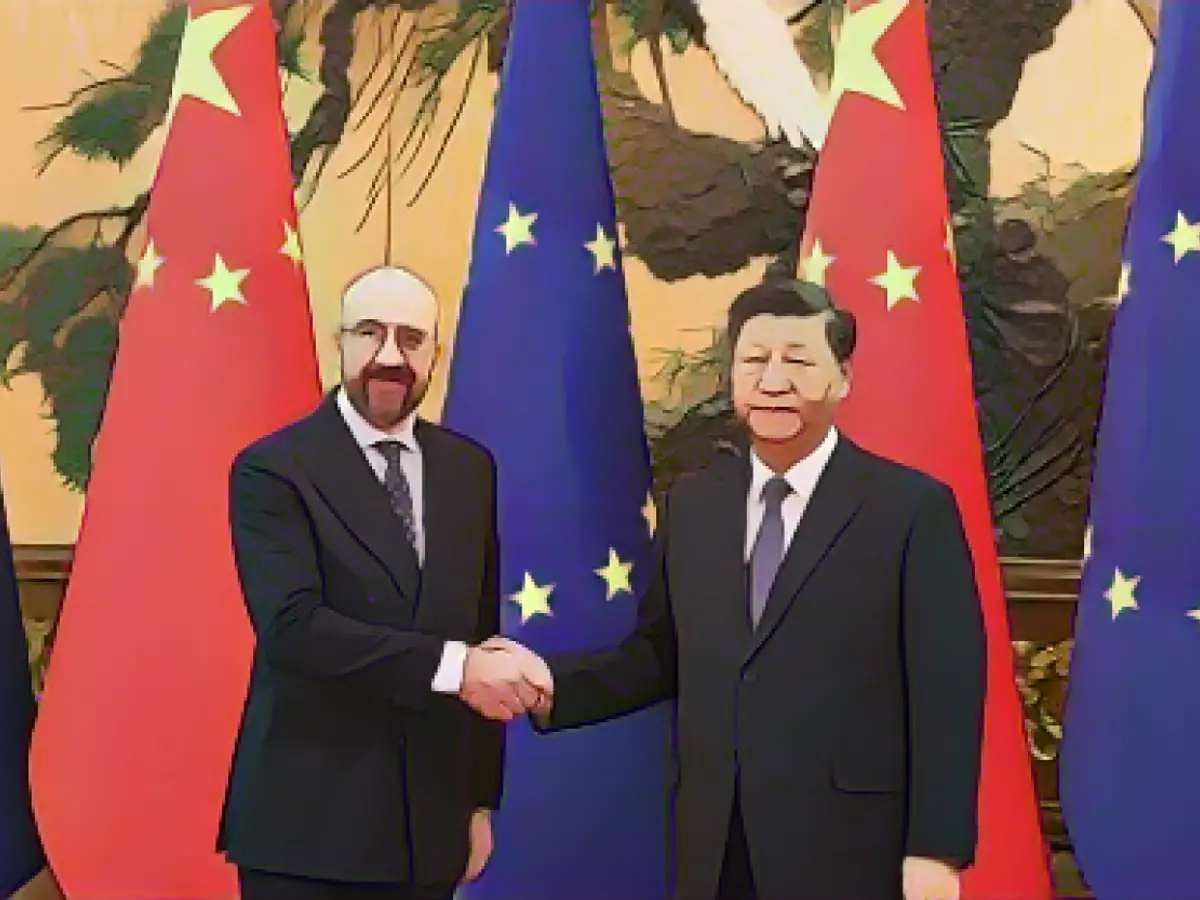EU Leaders Head to Beijing, Hoping for Improved Relations with China
Preparing for their first face-to-face meeting in four years, EU leaders travel to Beijing with a host of concerns. Following a virtual summit last year that left a sour taste for EU diplomat, Josep Borrell, the two parties hope to bridge the divide.
The EU brings a laundry list of economic grievances, hoping to improve relations with its crucial trading partner. Meanwhile, China grapples with domestic economic challenges and strengthening international ties. Chinese Foreign Minister Wang Yi sees the visit as a chance to elevate relations, urging both sides to focus on cooperation rather than conflict.
Will Xi Jinping Listen?
With deep-rooted divergences between the two sides, stretching from economic relations to opposing stances on the Russian war in Ukraine, many are skeptical of significant breakthroughs. As EU leaders set the stage for the summit, they've made their expectations clear.
Agenda for Discussion
The summit takes place amidst an EU review of its China policy, which has placed pressure on the need to eliminate risks from China's supply chains and secure crucial technologies. EU leaders will meet with Xi Jinping and Premier Li Qiang, joined by Ursula von der Leyen, president of the European Commission, Charles Michel, president of the European Council, and Borrell himself.
Pressing Issues
A major concern lies in the vast trade deficit between the EU and China, which Brussels attributes to Chinese subsidies and entry barriers. In recent months, Borrell has warned of an increase in protectionist sentiment if no progress is made on addressing the imbalance. The EU has also launched an investigation into state support for Chinese electric vehicle manufacturers and is closely watching Beijing's reactions.
Cooperation Possible?
Analysts suggest that Xi Jinping may make some gestures to help expand investment markets or address trade deficits during the closely watched summit. However, expectations for substantial advancements are low from the EU's perspective. Despite the challenges, many hope for a chance to open lines of communication and navigate ongoing tensions.
Criticism and Concerns
China's treatment of Hong Kong, human rights concerns in Xinjiang, and its handling of the COVID-19 pandemic have strained its relations with Europe. EU leaders will likely urge Xi Jinping to ensure Chinese companies do not support Russian military activities, as opposed to the U.S., which has already imposed sanctions on relevant Chinese entities.
With the Israeli-Hamas conflict escalating, both sides are expected to discuss the ongoing conflict. Europe and the United States have been critical of Israeli actions in Gaza, with over 15,000 Palestinians dead according to the Hamas-led Health Ministry.
Enrichment Data
During EU-China summit preparations, Chinese President Xi Jinping has responded to EU leaders' concerns by emphasizing the importance of mutual respect, equal treatment, and candid dialogue. Below are key points from recent interactions between EU and Chinese leaders:
- Mutual Respect and Cooperation: Xi emphasized the complementary nature of economic and trade relations, highlighting China's commitment to high-quality development and opening up as opportunities for cooperation[1].
- Addressing Trade Differences: Xi suggested voluntary export restraints to address EU's concerns over Chinese EVs. While progress has been slow, dialogue between EU and Chinese leaders continues[1][2].
- Enhancing Bilateral Cooperation: Xi held discussions with Italian President Sergio Mattarella, highlighting mutual interests and opposition to protectionism[1].
- Strategic Initiatives: Chinese President Xi Jinping has put forward major initiatives like GDI, GSI, and GCI to promote international cooperation and development[3].
- Diplomatic Efforts: Xi has met with various EU leaders, expressing support for open, constructive communication and seeking mutually beneficial solutions[1][2].
As EU leaders head to Beijing, hopes remain that the one-day summit may mark the beginning of improved relations with China. Only time will tell if political will and shared interests can help navigate the complexities that threaten to divide Europe and China.








